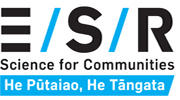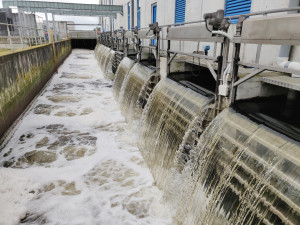Global differences in wastewater monitoring assessed in new analysis by international consortium, including ESR scientists
The results of the first large, multi-country survey of wastewater monitoring programs shed new light on how countries have used wastewater monitoring to respond to the spread of infectious diseases, including COVID-19. The peer-reviewed findings were released in The Lancet Global Health journal and are based on a survey of wastewater monitoring programs in 43 countries.
The survey was conducted as part of an ongoing partnership between The Rockefeller Foundation, Mathematica, and the United Kingdom’s Health Security Agency. Institute of Environmental Science and Research (ESR) scientists Joanne Hewitt, Joanne Chapman and Brent Gilpin were part of an international consortium that co-authored the publication.
The ongoing COVID-19 pandemic has highlighted the need for robust, and resilient, disease surveillance systems globally. With climate change intensifying, disease dynamics are changing in unprecedented and unpredictable ways, making countries more vulnerable to future health threats.
This paper Wastewater Monitoring Can Anchor Global Disease Surveillance(external link) characterises the current state of the field globally, summarizing approaches for implementation and insights on how to adapt and expand wastewater monitoring to local needs.
Based on their analysis, key findings emerged:
- In high-income countries (HICs), composite sampling at centralized treatment plants was most common. However, in low-income and middle-income countries (LMICs), grab sampling from surface waters, open drains, and pit latrines was more typical.
- Almost all programs analysed wastewater samples in-country, with an average processing time of 2–3 days in HICs and 4–5 days in LMICs.
- Monitoring for SARS-CoV-2 variants was more common in HICs than LMICs.
- Most programs share their wastewater data internally and with partner organizations, but not publicly. However, almost all countries surveyed were open to sharing aggregated data.
- There are currently no comprehensive guidelines to promote ethical wastewater monitoring practices.
The results highlight different approaches within the wastewater monitoring community, and the immense potential for cross-program learning. For wastewater monitoring to continue advancing, governance structures that include advocates at the highest levels, as well as regional and local entities to promote community-specific adaptation and monitoring will be essential. Because many wastewater programs currently rely on donor funding or short-term government aid, there is critical need for substantial financial investments to sustain wastewater monitoring as global COVID-19 funding declines.
ESR Science Leader for Health and Environment, Joanne Hewitt, says: “Wastewater COVID-19 surveillance, which is supported by the Ministry of Health, continues to be important to New Zealand. With cases now less likely to be reported, wastewater testing can look at disease trends and determine which variants are circulating, and serve as a better prediction of hospitalisation numbers. Wastewater samples collected and processed for COVID-19 surveillance can also be used for other cost effective purposes, such as poliovirus and flu surveillance.”

